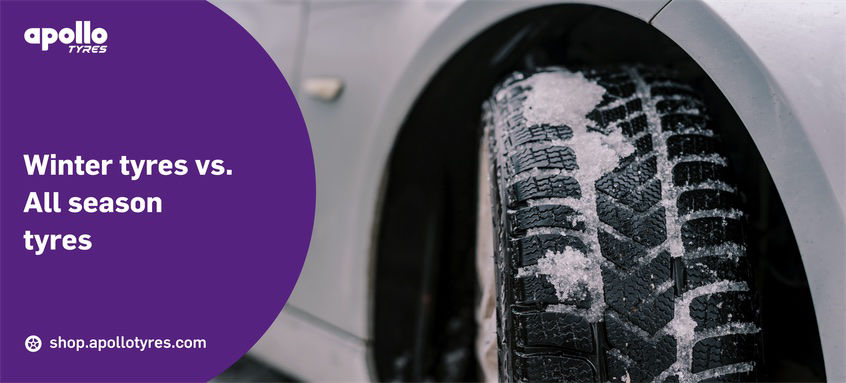
As the winter months approach, many drivers find themselves facing a common dilemma: which type of tires should they equip their vehicles with to ensure optimal safety and performance on snowy and icy roads? The two primary options that often come into consideration are winter tires and all-season tires. Understanding the distinctions between these tire types is essential for making an informed decision that best suits your driving needs. In this blog post, we will delve into the differences between winter tires and all-season tires, how to identify winter tires, their performance in snow, and whether winter tires truly make a difference.
Winter Tires:
Winter tires, also known as snow tires, are specifically designed to provide superior traction and handling in cold, snowy, and icy conditions. They are engineered with a unique rubber compound that remains pliable in freezing temperatures, allowing the tire to grip the road more effectively. Additionally, winter tires feature deep treads and intricate siping patterns that bite into snow and ice, enhancing traction and reducing the risk of skidding.
Identifying winter tires is relatively straightforward. They are marked with a mountain and snowflake symbol on the sidewall, indicating that they meet specific snow traction performance standards. This symbol is your assurance that the tire is designed for winter driving conditions.
All-Season Tires:
On the other hand, all-season tires are a versatile choice designed to offer adequate performance in various driving conditions, including dry, wet, and light snow. They feature a tread pattern that strikes a balance between traction on wet roads and a comfortable ride on dry surfaces. All-season tires are a popular choice for drivers who do not want the hassle of changing tires seasonally and are looking for a tire that performs reasonably well throughout the year.
Performance in Snow:
When it comes to snowy conditions, the contrast between winter tires and all-season tires becomes particularly evident. Winter tires outperform all-season tires on snowy and icy roads. The deep treads and specialized rubber compound of winter tires provide significantly better traction, allowing for safer and more predictable handling in challenging winter weather. All-season tires, while capable of handling light snow, lack the specialized features that make winter tires so effective in extreme winter conditions.
Do Winter Tires Work?
The short answer is yes; winter tires do work. Their design and construction are specifically tailored to excel in cold, snowy, and icy conditions. Drivers who switch to winter tires during the colder months often notice a significant improvement in their vehicle's traction and stability, leading to increased confidence on winter roads. It's important to note that winter tires are not just for regions with heavy snowfall – even in areas where snowfall is infrequent, winter tires can make a substantial difference in safety and performance during winter weather events.
Difference Between Winter Tires and All-Season Tires:
Tread Depth: Winter tires have deeper treads with more aggressive patterns, allowing for better grip on snow and ice. All-season tires have shallower treads designed for a smoother ride on dry and wet surfaces.
Rubber Compound: Winter tires use a softer rubber compound that remains pliable in cold temperatures, enhancing traction. All-season tires use a harder rubber compound that provides durability and longevity but may stiffen in extreme cold, reducing traction.
Siping: Winter tires feature intricate siping patterns – small slits in the tread blocks – that create additional biting edges for improved traction on slippery surfaces. All-season tires have fewer sipes, which may limit their effectiveness in snow and ice.
Performance in Snow: Winter tires deliver superior performance in snow and ice, offering better braking, cornering, and acceleration compared to all-season tires.
In conclusion, the choice between winter tires and all-season tires depends on your specific driving needs and the prevailing weather conditions in your area. If you frequently encounter severe winter weather, investing in a set of dedicated winter tires is the safest option. However, if you live in a region with milder winters and occasional snowfall, all-season tires may suffice for your driving requirements.
Remember, regardless of the type of tires you choose, proper maintenance and regular checks, including monitoring tire pressure and tread depth, are crucial for ensuring your safety on the road. Stay informed, make the right choice for your vehicle, and drive confidently, knowing that your tires are equipped to handle the challenges of winter driving.

